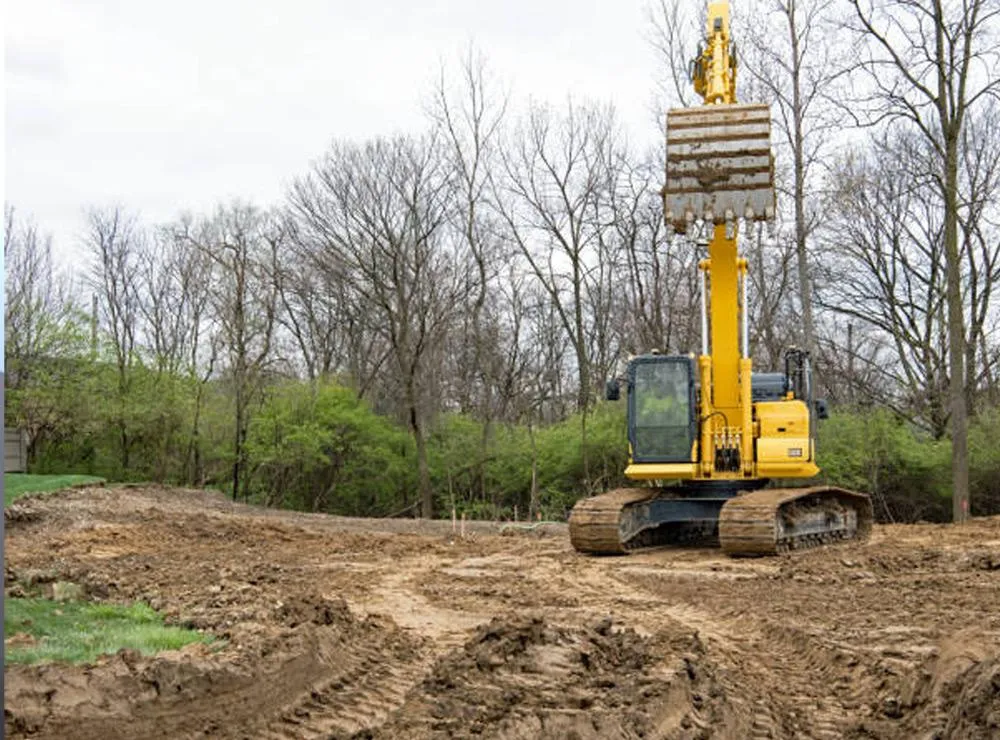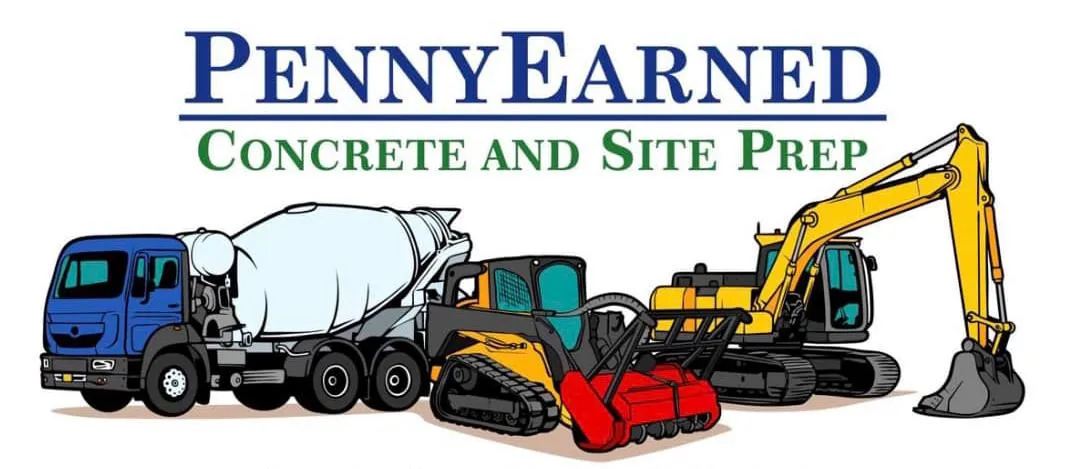
The Ultimate Guide to Choosing the Right Excavation Contractor near Montgomery
1. Why Choosing the Right Excavation Contractor Matters
You’re not just digging a hole. You’re starting the foundation for everything else — your home, your shop, your barn, your future. And when something that important starts off on the wrong foot? You feel it in your wallet, your timeline, and your peace of mind.
We’ve talked with folks all over Montgomery, Autauga, Elmore, Lowndes, Bullock, Macon, Tallapoosa, Chilton, Dallas, and Pike Counties who’ve told us the same thing: “I didn’t know how much could go wrong with excavation until it did.”
This guide is for you — the homeowner (or landowner) trying to do things right. Maybe you're building your dream home. Maybe you're prepping land for a shop or pole barn. Either way, you're probably wondering:
Who can I trust to do this right?
What’s a fair price?
What if they mess up my land?
Will they even show up on time?
Let’s walk through it — from the questions you should be asking, to the red flags, to what makes one excavation crew different from another.
2. What Most Homeowners Get Wrong About Excavation
Excavation looks simple. You see heavy machinery moving dirt and think, “Yeah, I could rent one of those.”
But what you don’t see is what lies under that dirt — roots, utilities, unstable soil, water runoff zones, clay pockets, rocky ledges, or worse.
We’ve been called in more than once to fix jobs that were started by someone with “a buddy and a backhoe.” It’s not your fault if you didn’t know — nobody teaches this stuff in school. But getting it wrong can mean:
Water pooling around your foundation
A septic system that doesn’t drain
A driveway that turns to mush every time it rains
Excavation sets the tone for everything else. If the site isn’t prepped right, it all costs more later.
3. How to Tell If an Excavation Company Knows What They're Doing
You don’t need to be an expert — you just need to know what they should know.
Here’s what a solid excavation crew should talk about right away:
Soil testing and grading — not just digging, but shaping the land to handle water and structure load
Drainage planning — especially in Alabama clay
Permitting and utilities — they should be able to tell you what’s buried, and where
Access and staging — how they'll get equipment in and out without chewing up the rest of your property
If a contractor skips these conversations? That’s a red flag.
4. The Big Red Flags to Watch Out For
We’ve seen it all. Here are a few signs you might want to keep looking:
“We can start tomorrow.” (Good crews are usually booked out.)
No contract or paperwork. (That’s a fast track to a legal mess.)
Only cash payments accepted. (Come on.)
Won’t explain their plan. (You’re paying for more than dirt work — you deserve clarity.)
Also — ask if they’ve worked in Montgomery County or nearby. The soil and terrain here are unique, and out-of-area contractors can get caught off guard.
5. Questions You Should Ask Before Hiring Anyone
You don’t need a script — just be direct. These five questions can tell you a lot:
Have you done projects like mine before?
Do you have references or photos from past work?
How do you handle unexpected issues underground?
Are you licensed and insured?
Can you walk me through your excavation plan?
Their answers should make you feel more informed, not more confused.
6. What Excavation Actually Involves (And Why It’s Not Just Digging)
Here’s the part many folks don’t see. Excavation includes:
Site prep — clearing, leveling, compacting, and grading
Trenching — for water lines, electrical, septic, or foundations
Drainage planning — so water moves away from your structure
Foundation digging — for slabs, crawl spaces, or basements
Backfill and compaction — to ensure everything sits tight and stable
Done right, this all sets your structure up for decades of stability. Done wrong, and well... you may find yourself calling us in a year to fix it.
7. Understanding Excavation Costs in Montgomery and Nearby Areas
Excavation isn’t one-size-fits-all. Prices will depend on:
Site size and access
Soil conditions (Montgomery clay is no joke)
What’s underground (tree roots, rock, old junk)
How much clearing or grading is needed
Trenching depth and distance
Septic or utility tie-ins
That said, here’s a rough idea:
Basic excavation for a foundation pad: $3,000 – $10,000
Full site prep with clearing, trenching, and drainage: $10,000 – $25,000+
Driveway prep or grading: $1,500 – $5,000+
Pro tip: Be cautious with prices that seem too low. Excavation is a job where cutting corners early means paying double later.
8. Should You Hire Local? Here’s Why It Matters
Let’s say it straight: local matters. Here’s why:
We know Montgomery County soil and how it handles rain.
We’ve seen what runoff does to improperly graded land.
We have local relationships with utility locators, inspectors, and county offices — and yes, that helps the timeline.
If something ever needs adjusting, you’re not chasing someone two counties away.
When you're working with a crew that lives and works nearby, it’s not just about distance. It’s about accountability.
9. Custom Work vs. Cookie-Cutter: Why One Size Doesn’t Fit All
Some contractors do the same thing every time. Same grade. Same cut. Same pitch. That’s fine — until your land throws them a curveball.
We’ve worked on sites with:
Steep slopes and soft spots
Hidden concrete from old barns
Tree stumps the size of a truck
Groundwater seeping in unexpectedly
Every job needs a slightly different approach. That’s why we build custom excavation plans, not just “plug-and-play” work.
10. What Homeowners in Montgomery County Are Saying About Their Contractors
You can learn a lot from other homeowners — especially those who’ve had good and bad experiences.
Here’s what they often say in reviews (and to us on-site):
“They showed up late and never communicated.”
“They tore up our whole yard and didn’t fix it.”
“The crew that came out wasn’t the same crew I hired.”
“Wish we’d hired someone local who knew the terrain.”
And then the good ones:
“They explained everything and kept us in the loop.”
“They worked fast but carefully. Didn’t cut corners.”
“They left the site better than they found it.”
When you're reading reviews, look for comments about communication, cleanup, and follow-through — those are where most contractors fall short.
11. How PennyEarned Concrete and Site Prep Approaches Every Job
We’re not the biggest crew in Alabama, but we don’t try to be. What we are is intentional. We show up when we say we will. We walk every job site. We listen to what you actually need — not just what we think you need.
We serve most of Montgomery County, Autauga County, Elmore County, Lowndes County, Bullock County, Macon County, Tallapoosa County, Chilton County, Dallas County, and Pike County, and the work we do isn’t always flashy. But it’s solid. It lasts.
And no — this isn’t the part where we hard-sell you. If we’re a fit, great. If not, we still want you to find someone good.
12. Final Thoughts: Making a Confident, Informed Decision
You don’t need to become an expert in excavation — but you do need to know how to spot one.
To recap:
Ask real questions.
Listen for clear, thoughtful answers.
Pay attention to how they treat your land — and your time.
Don’t fall for the cheapest bid if it means cutting corners.
Hire someone local who sees your project as more than “just another job.”
Because at the end of the day, this isn’t just about dirt. It’s about the future you're building on it.
And if you’ve got questions? We’re here. We’ll tell you the truth, even if the job ends up not being ours.
Need help figuring out the next step in your excavation project? Reach out to PennyEarned Concrete and Site Prep — no pressure, no pitch, just honest answers.
All rights reserved | Privacy policy | Client Support Area | Terms & Conditions | Privacy policy




